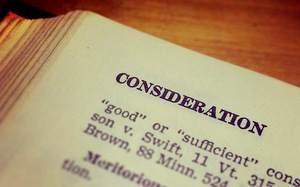Unmarried Cohabitants and Palimony

Throughout San Diego County many unmarried couples are cohabitating with expectations regarding property and support if the couple were to break up. However, depending on the particular facts involved, that expectation may or may not be realistic. Couples may decide to live together before marriage for a variety of social and economical reasons including the affordability of housing, pursuing a career before settling down, or to test the relationship before taking the next step and getting married. Regardless of each cohabitating couple’s rationale, the legal implications remain the same and family law attorneys are regularly asked for advice regarding these issues.
Divorce attorneys will advise their clients that unmarried couples are not entitled to the same property and spousal support rights as married couples, even if they cohabitate for a significant period of time. However, as is the case with married couples, unmarried cohabitants have the ability to contract out of the default laws governing their relationship. Express or implied contracts between unmarried cohabitants are enforceable as long as they are based on legal and valid “consideration”.
 Consideration is defined as “bargained-for exchange” and is a necessary element to make any contact enforceable. In other words, consideration is the “stuff” that each party exchanges pursuant to a contract. In a typical contract one party will pay money and the other party will supply a good or service. Both parties must give up something in order for a contract to be enforceable.
Consideration is defined as “bargained-for exchange” and is a necessary element to make any contact enforceable. In other words, consideration is the “stuff” that each party exchanges pursuant to a contract. In a typical contract one party will pay money and the other party will supply a good or service. Both parties must give up something in order for a contract to be enforceable.The problem many unmarried cohabitants run into with regard to their express or implied contracts is the legality of the consideration. Sexual services are not valid consideration because the exchange of sex for money is currently illegal in the state of California. Many cohabitants who create contracts prior to marriage include a provision regarding the parties’ sexual expectations. Attorneys know that under>California case law, the entire contract will not be invalidated as long as the illegal provision is severable from the agreement as a whole. The Court in such a case will simply disregard the unenforceable provision and enforce the remaining contract terms.
In order for “palimony” contracts between unmarried couples to be enforceable, the couple must be cohabitating. California courts have determined that the act of cohabitating necessitates the exchange of domestic services which is valid consideration. Further, courts are concerned that but for the cohabitation requirement, every dating relationship would have the potential for palimony claims.
Palimony actions require a high level of skill and a strong knowledge of California Family Law. Contact our office if you would like to consult regarding a palimony action, are considering a divorce from your spouse, or have questions regarding post judgment modifications. Call 858-793-8884 in Del Mar, Carmel Valley, North County or San Diego to meet with Andrew J. Botros or Matthew S. Blado.
 San Diego Family Lawyers Bickford Blado & Botros Home
San Diego Family Lawyers Bickford Blado & Botros Home



